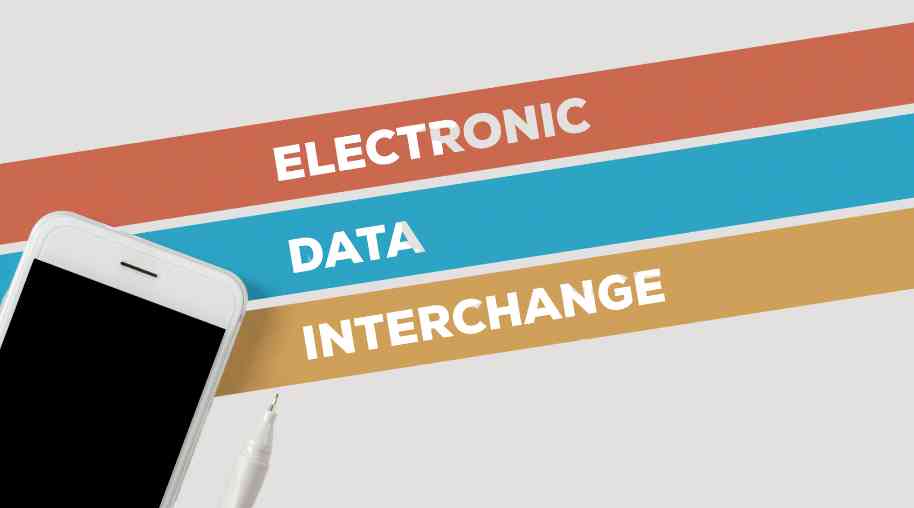EDI Full Form-Electronic Data Interchange
by Shashi Gaherwar
0 2312
Electronic Data Interchange (EDI): Transforming Digital Transactions and Business Communications
Introduction
In today’s fast-paced digital economy, businesses rely on efficient, secure, and automated ways to exchange information. Electronic Data Interchange (EDI) is a technology that enables organizations to electronically exchange structured business documents, reducing manual processes and enhancing efficiency.

EDI replaces traditional paper-based communication with electronic data transmission, leading to faster processing, lower costs, and improved accuracy in business transactions. This article explores the concept, working mechanism, benefits, applications, and future of EDI in modern business operations.
What is Electronic Data Interchange (EDI)?
Electronic Data Interchange (EDI) is the electronic exchange of business documents between organizations in a standardized format. It eliminates the need for paper-based transactions, allowing companies to automate processes such as:
- Purchase orders
- Invoices
- Shipping notices
- Payment confirmations
- Inventory updates
EDI is widely used in industries such as retail, healthcare, manufacturing, logistics, and finance to streamline operations and enhance business communications.
How Does EDI Work?
EDI operates through a structured format that enables different systems to communicate seamlessly. The process follows these key steps:
- Document Preparation
- The sender’s system generates a business document (e.g., purchase order) in an electronic format.
- Data Conversion
- The document is translated into an EDI standard format using specialized software.
- Transmission
- The structured EDI file is securely transmitted via communication protocols such as AS2, FTP, or VAN (Value-Added Network).
- Reception and Translation
- The recipient’s system receives the file and converts it into a readable format.
- Processing
- The data is automatically integrated into the recipient’s system, eliminating the need for manual data entry.
Common EDI Standards
To ensure compatibility across different industries and organizations, standardized EDI formats have been developed, including:
- ANSI X12 (United States) – Common in retail, healthcare, and logistics.
- EDIFACT (International) – Used in global trade and supply chain management.
- TRADACOMS (United Kingdom) – Primarily used in the retail sector.
- HL7 (Healthcare Industry) – Used for medical transactions and patient records.
Benefits of Electronic Data Interchange (EDI)
Implementing EDI offers numerous benefits for businesses, including:
- Faster Transactions
- Reduces processing time by automating document exchanges.
- Eliminates delays associated with manual paperwork and postal services.
- Cost Reduction
- Saves costs on paper, printing, and postal expenses.
- Reduces labor costs associated with manual data entry and processing.
- Improved Accuracy
- Minimizes human errors caused by manual entry, such as data duplication or misinterpretation.
- Enhanced Security
- EDI transactions use secure communication protocols, ensuring data integrity and confidentiality.
- Better Supply Chain Management
- Enables real-time inventory tracking, reducing stock shortages and overstocking.
- Improves coordination between suppliers, manufacturers, and distributors.
- Regulatory Compliance
- Many industries require EDI for regulatory reporting and standardization.
- Ensures compliance with global trade and tax regulations.
Applications of EDI in Different Industries
- Retail and E-Commerce
- Automates order processing and invoicing between suppliers and retailers.
- Enhances inventory management and customer fulfillment processes.
- Healthcare
- Facilitates electronic claims processing and insurance transactions.
- Streamlines patient record management and billing.
- Manufacturing
- Integrates with Enterprise Resource Planning (ERP) systems for supply chain automation.
- Improves coordination between manufacturers, suppliers, and logistics providers.
- Logistics and Transportation
- Enhances tracking of shipments and freight movement.
- Reduces paperwork in customs clearance and global trade.
- Finance and Banking
- Speeds up electronic payments and fund transfers.
- Reduces errors in invoicing and financial reconciliation.
Challenges in Implementing EDI
Despite its advantages, businesses may face certain challenges in EDI adoption:
- High Initial Setup Costs
- Requires investment in EDI software, integration, and employee training.
- Complexity in Standardization
- Different industries use varying EDI standards, requiring multiple format adaptations.
- Integration with Legacy Systems
- Some businesses struggle to integrate EDI with outdated IT infrastructure.
- Cybersecurity Risks
- EDI networks must be protected from potential data breaches and unauthorized access.
Future of Electronic Data Interchange
With advancements in cloud computing, blockchain, and artificial intelligence (AI), EDI is evolving to become more efficient and secure. Future trends include:
- Cloud-Based EDI
- Reduces IT infrastructure costs and enhances accessibility.
- Blockchain for EDI Security
- Ensures tamper-proof transactions and enhanced data integrity.
- AI and Automation
- Improves predictive analytics and decision-making in business transactions.
- APIs for EDI Integration
- Simplifies data exchange between businesses and cloud-based applications.
Electronic Data Interchange (EDI) is a game-changer in modern business communications, enabling seamless digital transactions, improving efficiency, and reducing costs. While challenges exist, the continuous evolution of EDI technologies ensures its relevance in the future of global trade and business operations.
As businesses strive for faster, safer, and automated transactions, adopting EDI remains a strategic investment for long-term success in today’s digital economy.
Further Learning Resources
If you’re passionate about building a successful blogging website, check out this helpful guide at Coding Tag – How to Start a Successful Blog. It offers practical steps and expert tips to kickstart your blogging journey!
For dedicated UPSC exam preparation, we highly recommend visiting www.iasmania.com. It offers well-structured resources, current affairs, and subject-wise notes tailored specifically for aspirants. Start your journey today!

Share:









Comments
Waiting for your comments